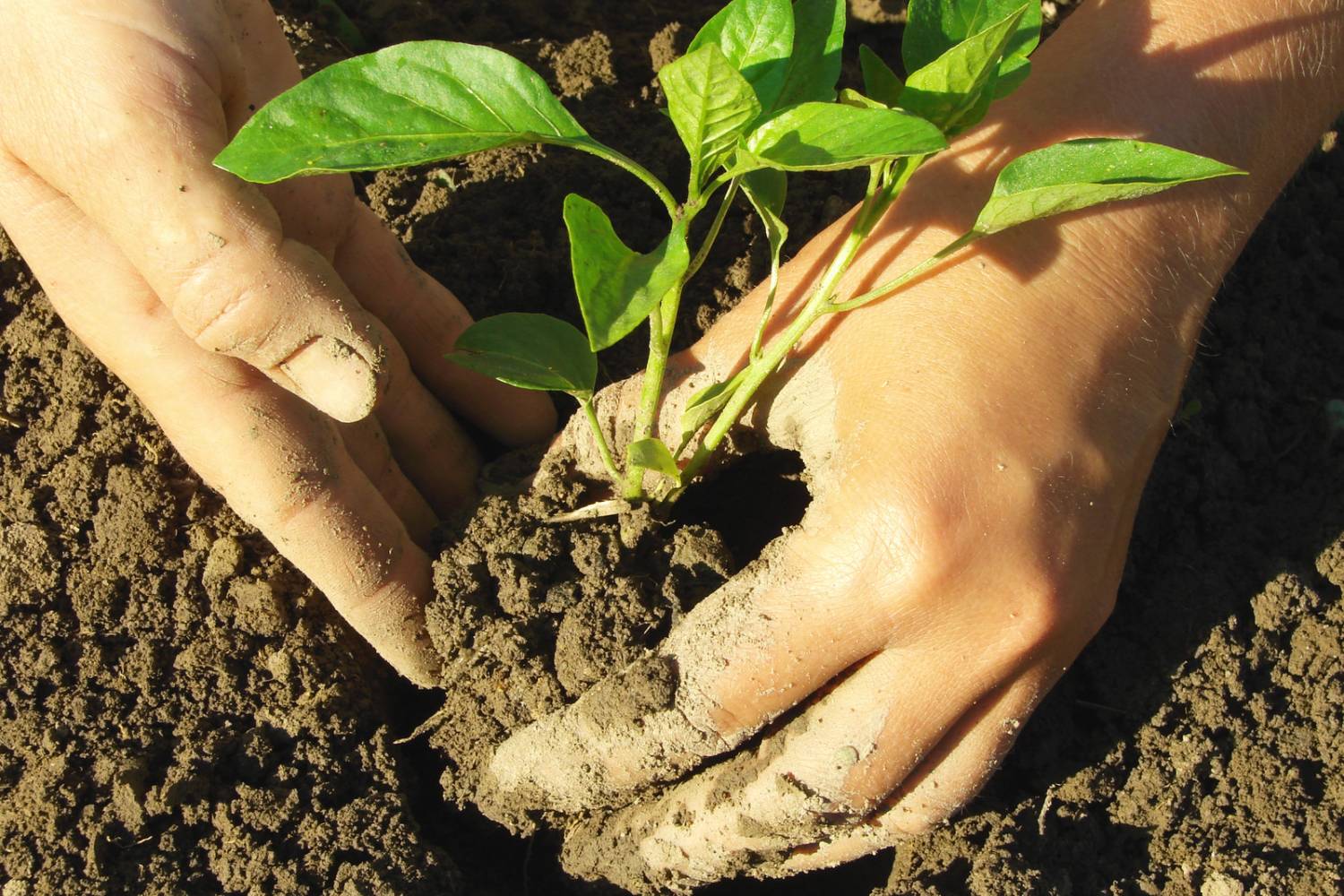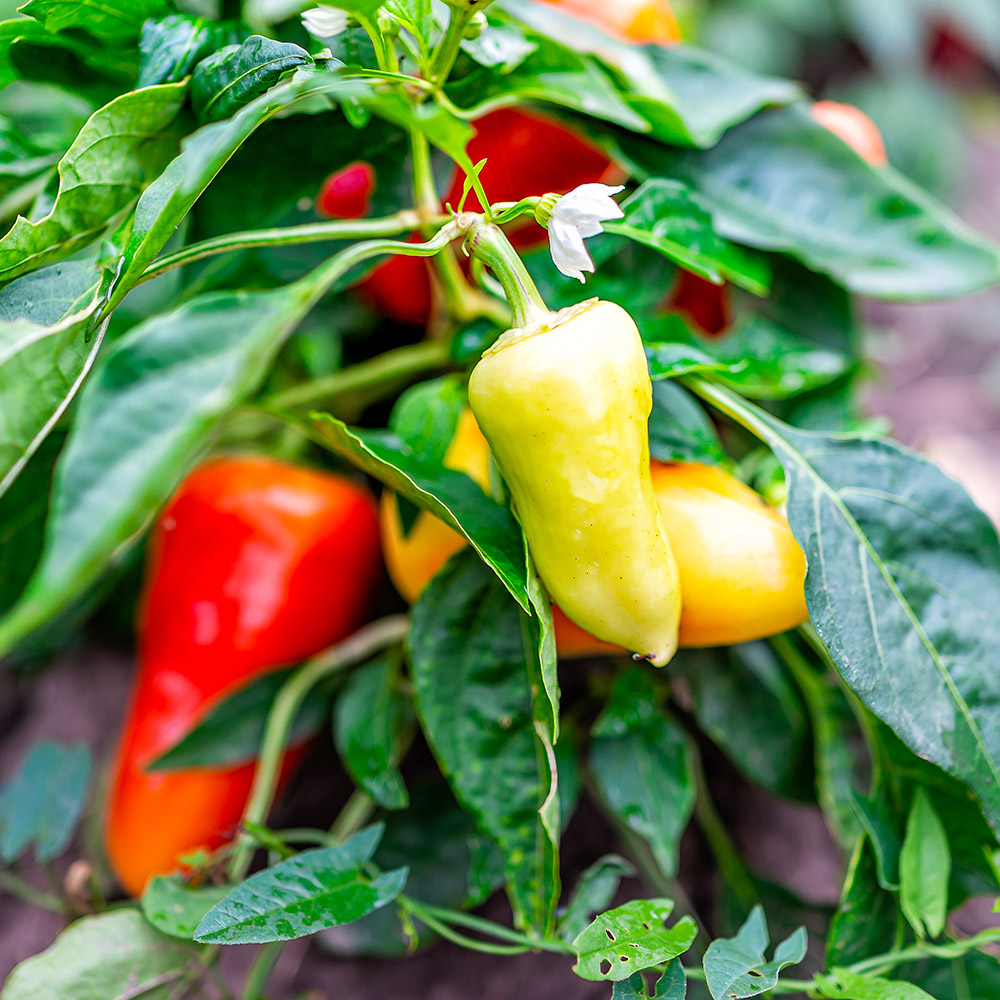Best Fertilizers for Peppers: Attain Superior Results in Your Yard
Organic Vs. Synthetic Fertilizers: Which Is Best for Supporting Healthy Pepper Plants?
In the world of supporting healthy pepper plants, the option between organic and synthetic fertilizers stands as a pivotal choice with far-ranging ramifications. While both choices aim to supply crucial nutrients to sustain plant growth, the subtleties of their influence on the dirt, plant health and wellness, and the environment stimulate a dispute that echoes throughout the gardening community. Recognizing the distinctive benefits and prospective mistakes of each plant food type is vital for pepper farmers looking for to enhance their yields while keeping an eco-conscious and lasting technique.
Benefits of Organic Fertilizers
Organic plant foods use a lasting and environmentally-friendly technique to beneficial pepper plants, supplying necessary nutrients without making use of artificial chemicals. These all-natural fertilizers are stemmed from organic resources such as garden compost, manure, bone meal, and seaweed, advertising dirt health and wellness and biodiversity. Unlike artificial plant foods, natural alternatives release nutrients slowly, ensuring a consistent and well balanced supply for pepper plants to flourish.
One considerable benefit of organic plant foods is their ability to boost soil structure and water retention. By boosting dirt health and wellness, organic fertilizers promote helpful microbial activity, which aids in nutrient uptake by pepper plants. Additionally, organic fertilizers minimize the threat of chemical run-off, protecting water sources from contamination and guarding the atmosphere.
In addition, organic plant foods add to long-term soil fertility by promoting the development of useful soil microorganisms. These organisms assist damage down raw material, launching nutrients in a type that is quickly obtainable to pepper plants. best fertilizers for peppers. By cultivating a healthy dirt environment, natural plant foods support sustainable pepper growing methods that profit both plants and the setting
Downsides of Artificial Fertilizers
Synthetic fertilizers, as opposed to their organic counterparts, posture numerous drawbacks when made use of to nourish pepper plants, influencing both plant wellness and environmental sustainability. One significant disadvantage of synthetic plant foods is their tendency to seep nutrients from the soil quickly. This quick leaching can result in nutrient imbalances in the soil, triggering plants to suffer from shortages or toxicities. Additionally, synthetic plant foods can hurt valuable soil organisms, such as earthworms and useful bacteria, disrupting the dirt environment's balance.
Moreover, the overuse of synthetic plant foods can contribute to water pollution. Excess fertilizers not absorbed by plants can get rid of right into water bodies, resulting in eutrophication, where algae blooms deplete oxygen levels in the water, harming marine life. In addition, synthetic plant foods are generally originated from non-renewable sources, such as fossil gas, adding to carbon discharges and environmental deterioration during their production.
Nutrient Absorption Comparison
Efficient nutrient absorption plays a crucial function in the overall health and wellness and development of pepper plants. When contrasting natural and synthetic fertilizers in terms of nutrient absorption, organic plant foods have the benefit of giving a more well balanced and slow-release resource of nutrients (best fertilizers for peppers). Organic fertilizers consist of a variety of macro and trace elements that are not just useful for the plants but likewise promote healthy soil microbial activity, which aids in nutrient uptake. On the other hand, synthetic plant foods frequently provide a fast launch of nutrients, which can lead to leaching and drainage, leading to reduced nutrient absorption rates by the plants.
Moreover, natural plant foods enhance soil structure and water retention ability, permitting pepper plants to access nutrients much more effectively. This better soil quality promotes origin advancement, making it possible for much better nutrient absorption. Artificial fertilizers, although originally enhancing plant development as a result of their high nutrient focus, may impede long-lasting nutrient absorption by degrading soil wellness over time.
Environmental Influence Considerations

On the other hand, synthetic fertilizers, although usually even more concentrated and promptly offered to plants, can have damaging results on the environment otherwise used properly (best fertilizers for peppers). Their production requires high power inputs, bring about greenhouse gas discharges and adding to climate change. The drainage of excess synthetic fertilizers can pollute water resources, leading to eutrophication and hurting marine communities.
Best Plant Food Practices for Peppers
When fertilizing pepper plants, enhancing nutrient uptake and decreasing environmental effect are key considerations. To achieve this, it is vital to follow best fertilizer practices tailored to the specific needs of pepper plants. One critical method is to perform a dirt examination before applying any kind of fertilizers. This examination can identify the pH degree of the dirt and identify any kind of nutrient deficiencies, directing you in selecting one of the most suitable fertilizer solution.
Another crucial practice is to feed pepper plants at the best time. Commonly, peppers take advantage of obtaining plant food at planting and afterwards again click now when they begin to flower. Over-fertilizing can bring about nutrition imbalances and harm the plants, so it is essential to adhere to recommended application rates.
In addition, selecting a balanced fertilizer with an NPK proportion that fits pepper plants' requirements is essential. Organic plant foods, such as compost or manure, can be outstanding choices as they release nutrients gradually and enhance dirt structure gradually. However, artificial plant foods can supply a quick nutrient boost when needed. Inevitably, combining synthetic and organic fertilizers judiciously can aid nurture healthy pepper plants while minimizing ecological influence.
Verdict

Organic fertilizers offer an environmentally-friendly and lasting method to nourishing pepper plants, providing necessary nutrients without the usage of synthetic chemicals. Unlike artificial fertilizers, natural options launch nutrients gradually, making sure a balanced and constant supply for pepper plants to prosper.
Synthetic fertilizers, in contrast to their organic equivalents, pose numerous downsides when utilized to nourish pepper plants, affecting both plant health and wellness and ecological sustainability. When comparing synthetic and natural fertilizers in terms of nutrient absorption, natural plant foods have the benefit of providing an extra well balanced and slow-release source of nutrients.Additionally, natural fertilizers boost soil framework and water retention ability, permitting pepper plants to gain access to nutrients much official website more successfully.